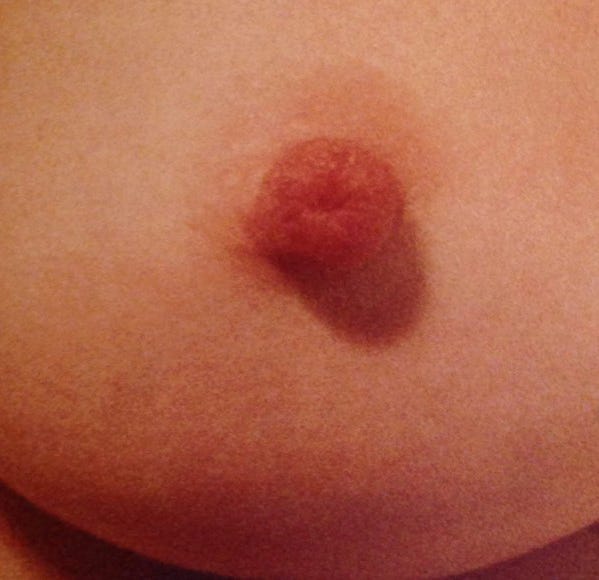Demystifying Motherhood
An exhibition proposal
To become a mother is to transform. However the institution of motherhood was created by men and its idealization is everywhere in our culture. “Motherhood is one of our modern, enlightened society’s awkward little secrets. Here we are with more than 100 years of feminism under our belts, including 50 years of second-wave feminism, during which many consciousness-raising hours were spent unpicking domestic enslavement. Yet mothers are still underpaid, overworked, exploited, overlooked, frazzled, isolated and perpetually guilty.” argues Elaine Glaser in an article for the newspaper The Guardian in 2021.1
Demystifying Motherhood features works by Jenny Saville, Chantal Joffe, Leonora Carrington, Louise Bourgeois, Tracy Emin, Alice Neel, Yoko Ono and the Guerrilla Girls and includes a two-day symposium where we will expand on the topic with authors Rachel Yoder, author of Nightbitch, and Claire Oshetsky, author of Chouette. and scholars Dr. Pamela Geller, an associate professor of anthropology at the University of Miami strongly committed to transdisciplinarity; her research interests include bioarchaeology, feminist and queer studies, materiality of identity, bio-politics and the body, and the socio-politics of the past. Dr. Rebecca Gowland, executive Dean, People and Culture in the Faculty of Social Sciences and Health at Durham University and a Research Fellow at St John’s College, Cambridge. One of her research interests being the infant/mother nexus in anthropology and archaeology.
This sanitised version of motherhood stands in stark contrast to “the ‘brutality and power and darkness’ of the experience and the animalistic love that results from it” continues Glaser.2 There is a sense that this brutal reality at the heart of the “republic of Motherhood” remains something feral and primeval that is yet to be fully explored. Almost 50 years ago, Hélène Cixous wrote in The Laugh of the Medusa of “a need for an écriture feminine that would rewrite the unspoken truths of the female body, it’s ‘otherness’.” 3
Unfortunately, we are still controlled by myths which do not allow us to open our eyes to reality. “The vast majority of Western art history’s early representations of mothers were heavily influenced by the male perspective. As a result, images of motherhood were often one-sided, reflecting expectations rather than realities, and disregarding the complexities of what it means to be a mother” states Salomé Gómez-Upegui.4 The label “mother” is an instant categorisation that takes away any shred of who a person is beyond that. “I wonder if I had unrealistic expectations on what it meant to birth a baby and become a mother. It’s made me question what motherhood means to me. Maybe becoming a mother is a role that doesn’t automatically happen in the surreal moment when your child is in your arms. There are so many other ways to become a mum anyway—whether through adoption, fostering, surrogacy, or stepparenting.” says Kimberley Hetherington in her essay for the Elephant Journal. 5
“Stereotypes”, as Bell Hooks states in her book of essays Belonging, “however inaccurate, are one form of representation. Like fictions, they are created to serve as substitutions, standing in for what is real.”6
How can we stand far from pre-established concepts and script a more accurate story about who we are and what the institution of motherhood is? Perhaps we need to unlearn and relearn as Alvin Toffler says: “The illiterate of the 21st century will not be those who cannot read and write, but those who cannot learn, unlearn, and relearn.” 7
Past exhibitions on the theme deepened the conversation and paved the way for more focused approaches as the one in this proposal. In 2015 La Grande Madre, presented at the Fondazione Nicola Trussardi in Milan, Italy was curated by Massimiliano Gioni and presented an analysis of the existing iconography and representation of motherhood from the 1900 till nowadays. Last year’s Mother!, at the Louisiana Museum of Art in Humlebæk, Denmark curated by Marie Laurberg, a large-scale exhibition that revolved around motherhood, viewed through changing notions of art and culture, primarily in the 20th and 21st centuries, was an excellent and timely survey. This year Mothering: Between Stockholm Syndrome and Acts of Production, an exhibition at the Museo Universitario Arte Contemporáneo in Mexico City looks closer into the idea of motherhood as an unpaid labor of care based on sacrifice, romanticized precisely to have unpaid labour force and keep having vital force for the mode of production, in this case, capitalism.
The following books will be available to the visitors during the exhibition and become part of the library’s collection: Nightbitch, by Rachel Yoder, The Harpy, by Megan Hunte, Brood, by Jackie Polzin, Chouette by Claire Oshetsky, The Mouse Queen by Camilla Grudova from her collection The Doll’s Alphabet, and Making Babies, by Anne Enright. These novels take place in the “real world” but it collides violently with the brutal, primal realities of mothering.
Notes:
1 Glaser, E. (2021, May 18). Parent trap: Why the cult of the perfect mother has to end. The Guardian. Retrieved May 16, 2022, from https://www.theguardian.com/lifeandstyle/2021/may/18/parent-trap-why-the-cult-of-the-perfect-mother-has-to-end
2 Glaser, E. (2021, May 18). Parent trap: Why the cult of the perfect mother has to end. The Guardian. Retrieved May 16, 2022, from https://www.theguardian.com/lifeandstyle/2021/may/18/parent-trap-why-the-cult-of-the-perfect-mother-has-to-end
3 Cixous, Hélène , The Laugh of the Medusa. Oxford University Press, 2010
4 Gómez-Upegui, Salomé, How Women Artists are Shaping the Way We See Motherhood, Artsy. Retrieved September 9, 2022, from https://www.artsy.net/article/artsy-editorial-women-artists-shaping-way-motherhood
5 Hetherington, Kimberley, Unlearning What it Means to be a Mother. Elephant Journal. Retrieved September 10, 2022 from https://www.elephantjournal.com/2022/03/unlearning-what-it-means-to-be-a-mother-kimberly-hetherington/
6 Hooks, Bell. Representations of Whiteness in the Black Imagination in Belonging: A Culture of Place. Routledge, 2009
7 Toffler, Alvin. Future Shock. Penguin Randam House, 1970



